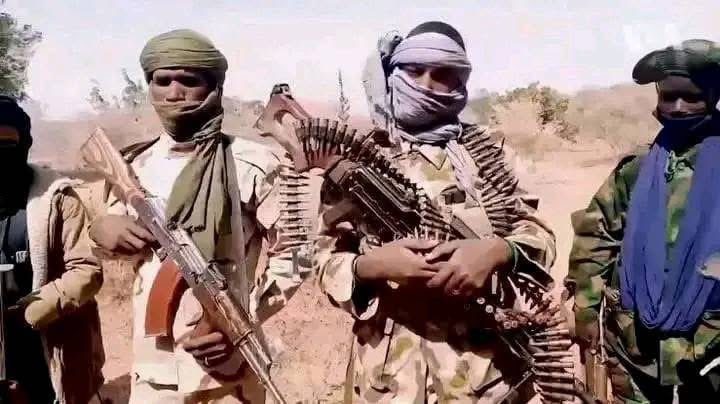In a development that has stirred nationwide attention and cautious optimism, notorious terrorist and bandit kingpin Bello Turji, long regarded as one of the most feared armed militants in North-West Nigeria, has reportedly surrendered and released 32 abducted victims. The unexpected move marks a significant turning point in the ongoing fight against banditry and rural terrorism in Zamfara and its surrounding regions. The release of the hostages, many of whom had been held in captivity for months, followed a series of peace negotiations led by prominent Islamic clerics.
Background: Who is Bello Turji?
For years, Bello Turji has been a central figure in the violent banditry crisis affecting Zamfara and neighboring states. He has been linked to:
- Mass kidnappings of villagers and travelers
- Destruction of farmlands
- Violent attacks on rural communities
- Control of territories used for ransom operations
His name became synonymous with fear, destruction, and instability, leading to multiple military offensives targeted at neutralizing his network.
Yet despite heavy security pressure, Turji remained elusive — until now.
The Peace Initiative Behind the Surrender
Reports indicate that the surrender did not happen spontaneously. Instead, it was the result of three strategic peace negotiation meetings held inside the Fakai Forest in Shinkafi Local Government Area.
These discussions were facilitated by a delegation of Islamic scholars led by Sheikh Yusuf, who has been actively mediating between militant groups and affected communities.
Their goal was not only to secure hostage release, but also to start a sustainable peace framework that would:
- Reduce violent reprisals
- Encourage militants to surrender arms
- Restore freedom of movement for villagers
- Allow farmers to return to their farmlands
- End ethnic and vigilante-related hostilities
Hostages Released After Months of Suffering
The 32 hostages freed included:
- Women
- Young children
- Elderly men
- Local farmers abducted from nearby villages
Some had been held in captivity for over four months, enduring harsh living conditions inside forest camps.
According to accounts, several victims suffered severe trauma, while one woman reportedly gave birth while in captivity. Another victim was said to have sustained a snake bite, highlighting the brutal realities of the hostage camps.
Their release brought visible relief and emotional scenes among families and locals who had long lost hope.
Partial Disarmament: A Gradual Process
While Turji is said to have surrendered, reports emphasize that it is not a full disarmament.
He has agreed to lay down a portion of his weapons, while retaining some for protection against rival militant factions still active in the forests.
The clerics overseeing the negotiation insisted that complete disarmament must come in phases, to avoid exposing Turji and his followers to retaliation or mass reprisals from opposing armed groups.
Peace Deal Conditions and Community Impact
Key points of the peace agreement include:
| Peace Agreement Terms | Expected Community Impact |
|---|---|
| Release of abducted hostages | Reduction in fear and psychological trauma among residents |
| Partial surrender of weapons | Gradual decline in armed confrontations |
| Safe access to farmlands | Revival of agriculture and local economy |
| Free movement for Fulani herders and villagers | Reduction in ethnic mistrust and retaliatory violence |
| Commitment to ongoing dialogue | Stabilization of security conditions over time |
Already, reports indicate residents have begun returning to their farms, a sign of renewed trust and hope.
Security Experts React
While many Nigerians are relieved, security analysts warn that:
- The peace deal is fragile
- Other bandit factions remain active
- Breakdown of negotiations could reignite violence
There are also calls for government oversight, to prevent the agreement from becoming a “temporary ceasefire” used by militants to regroup.
What This Means for Nigeria’s War Against Banditry
This event highlights a significant shift from purely military solutions to the adoption of negotiation-driven, community-based peace strategies.
If sustained, this approach could:
- Reduce violence across Northern Nigeria
- Restore rural economies
- Strengthen traditional and religious conflict resolution systems
But if mishandled, the region risks falling back into chaos.



